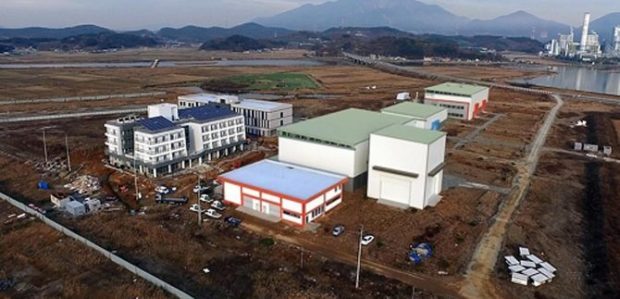Aberdeen University has been forced to abandon an ambitious plan to create an international campus in South Korea.
It took the “unfortunate” decision after years of delays caused by a combination of financial issues and the oil downturn.
The campus plan was first mooted in 2013 as part of the South Gyeongsang provincial government’s push to establish the region as a centre of expertise in offshore engineering.
In August 2016 the education ministry in Seoul granted permission for one-year postgraduate degrees in petroleum engineering, subsea engineering – with support from leading subsea companies – and oil and gas topside engineering specifically geared to the Korean market, together with an MBA in energy management and PhDs.
The campus had originally been planned to launch in September 2016, but was delayed due to reported financial issues and impacted by the oil downturn.
At the time, as many as 18 members of the Aberdeen campus expected to transfer to Hadong from the north-east.
As part of this investment, the campus was backed by “establishment funding” from the South Korean Ministry of Trade, Industry and Energy.
On Aberdeen University’s website it said would “deliver a world-class centre” in Korea where students are taught by staff “engaged in cutting-edge research on campus, as well as by experienced industry specialists with a proven track record in the international offshore industry”.
The webpage has since been deleted from the university’s online presence, as it’s emerged that the campus plan has been axed.

A spokesman from the university said: “We had hoped to open a campus in South Korea offering courses in offshore-related disciplines.
“Despite many efforts to adapt to the oil and gas downturn and change the focus of the campus towards programmes more relevant to new market conditions, such as degrees in decommissioning and renewable energy engineering, unfortunately we have not been able to go ahead.”
The news that Aberdeen University is not able to go ahead with the campus plan comes after the establishment’s debt for the 2016-17 period was revealed.
The Higher Education Statistics Agency returns released figures for universities across the United Kingdom, alongside their amount of borrowing.
The debt for Aberdeen University amounted to £40 million.
Aberdeen is not the only university to struggle with the development and maintenance of overseas links, with University College London (UCL) recently announcing its involvement with an international Quatar campus would end in October of next year.
UCL, which had a debt of £134 million between 2016/17, was also forced to close its Australia campus in 2017.
In addition, Glasgow Caledonian University, whose debt for the 2016-17 period was reported to be £8 million, said income from its New York campus had been “disappointing”.












